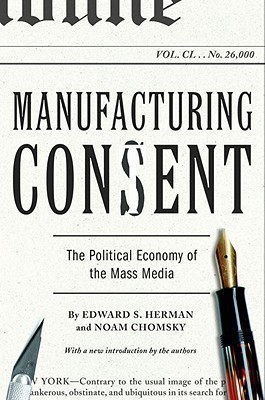More on this book
Community
Kindle Notes & Highlights
the media serve, and propagandize on behalf of, the powerful societal interests that control and finance them. The representatives of these interests have important agendas and principles that they want to advance, and they are well positioned to shape and constrain media policy. This is normally not accomplished by crude intervention, but by the selection of right-thinking personnel and by the editors’ and working journalists’ internalization of priorities and definitions of newsworthiness that conform to the institution’s policy.
Structural factors are those such as ownership and control, dependence on other major funding sources (notably, advertisers), and mutual interests and relationships between the media and those who make the news and have the power to define it and explain what it means.
But entertainment has the merit not only of being better suited to helping sell goods; it is an effective vehicle for hidden ideological messages.24 Furthermore, in a system of high and growing inequality, entertainment is the contemporary equivalent of the Roman “games of the circus” that diverts the public from politics and generates a political apathy that is helpful to preservation of the status quo.
This bias is politically advantageous to U.S. policy-makers, for focusing on victims of enemy states shows those states to be wicked and deserving of U.S. hostility; while ignoring U.S. and client-state victims allows ongoing U.S. policies to proceed more easily, unburdened by the interference of concern over the politically inconvenient victims.


